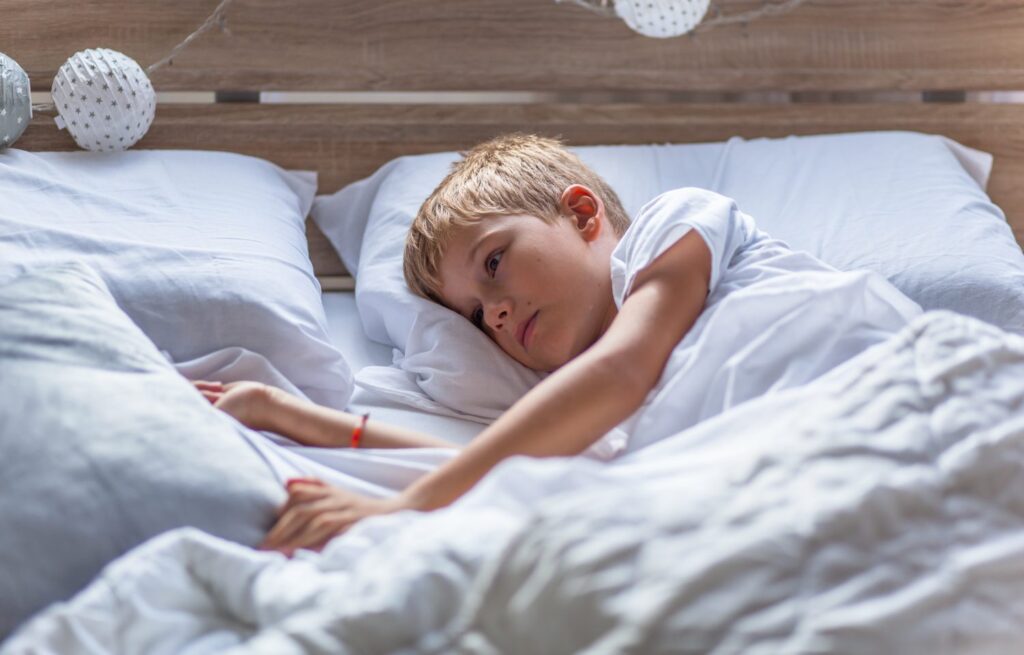Sleep is an essential component of our overall health and well-being, yet many people overlook its importance. Understanding sleep disorders, both common and rare, can pave the way for better health management and improved quality of life. In this article, we will take an in-depth look at why sleep matters, the science behind sleep disorders, and how testing for these issues can help individuals regain control over their sleep.
Understanding the Importance of Sleep
The Role of Sleep in Physical Health
Sleep plays a vital role in maintaining various physiological functions. During sleep, the body undergoes processes such as muscle growth, tissue repair, and protein synthesis. Furthermore, adequate sleep is crucial for regulating hormones, including those responsible for appetite control, stress response, and metabolism.
In conclusion, addressing sleep disorders is essential for achieving optimal health. Through awareness and sleep disorders test, individuals can gain valuable insights that lead to effective management strategies and improved overall well-being. By prioritizing sleep, we can enhance our quality of life, fostering better physical and mental health in the long run.
Chronic sleep deprivation can lead to numerous physical health problems, including obesity, heart disease, diabetes, and weakened immune function. The consequences of ignoring our body’s need for sleep are profound and can affect us for years to come. For instance, studies have shown that individuals who consistently get less than seven hours of sleep per night are at a higher risk of developing chronic conditions. This underscores the importance of not only the quantity of sleep but also the quality, as deep sleep stages are particularly essential for restorative processes.
The Impact of Sleep on Mental Well-being
Beyond physical health, sleep is inherently linked with mental health. Quality sleep improves cognitive functions, including problem-solving, decision-making, and creativity. Conversely, poor sleep can exacerbate a range of mental health issues, such as anxiety and depression.
Individuals who sleep well often report feeling more resilient, optimistic, and emotionally stable. Sleep affects not only how we feel on a day-to-day basis but also our long-term mental health trajectory, making it essential to prioritize sleep hygiene. Moreover, the relationship between sleep and mental health is bidirectional; while lack of sleep can lead to mental health challenges, conditions such as depression and anxiety can also disrupt sleep patterns, creating a vicious cycle. This highlights the need for holistic approaches to treatment that address both sleep and mental health, ensuring that individuals receive comprehensive care that promotes overall well-being.

The Science Behind Sleep Disorders
The Sleep Cycle Explained
Understanding the sleep cycle is key to grasping how sleep disorders operate. Human sleep is divided into various stages, including REM (Rapid Eye Movement) and non-REM sleep, each contributing differently to physical and mental recuperation. A typical sleep cycle lasts about 90 minutes and consists of several stages.
During non-REM sleep, the body goes through stages from light sleep to deep sleep, which is crucial for physical recovery. REM sleep, on the other hand, plays a vital role in memory consolidation and emotional regulation. Disruptions in these processes can lead to sleep disorders. For instance, during deep sleep, the body repairs tissues and builds bone and muscle, while REM sleep is essential for processing emotions and forming new memories. This intricate balance highlights how vital uninterrupted sleep is for overall health and well-being.
Common Causes of Sleep Disorders
Sleep disorders may arise from a variety of causes, both external and internal. Some common causes include stress, anxiety, lifestyle choices, and medical conditions. Poor sleep hygiene, characterized by irregular sleep schedules or excessive screen time before bed, can also exacerbate sleep issues. The blue light emitted by screens can interfere with the production of melatonin, the hormone responsible for regulating sleep-wake cycles, making it harder to fall asleep or stay asleep.
Additionally, underlying health problems such as chronic pain, respiratory issues, or hormonal imbalances can significantly impact the quality of sleep, leading to a cycle of sleep deprivation and health decline. Conditions like sleep apnea, where breathing repeatedly stops and starts during sleep, can lead to fragmented sleep and result in daytime fatigue. Furthermore, mental health disorders such as depression and anxiety can create a feedback loop, where poor sleep exacerbates symptoms, leading to even more sleep disturbances. Understanding these interconnected factors is crucial for developing effective treatment strategies for those suffering from sleep disorders. Read more about depression on https://www.nimh.nih.gov/health/topics/depression
Common Sleep Disorders and Their Symptoms
Insomnia and Its Indicators
Insomnia is perhaps the most well-known sleep disorder. It is characterized by persistent difficulty falling or staying asleep, often coupled with daytime fatigue. Individuals with insomnia may find themselves waking up throughout the night or waking too early and being unable to return to sleep.
Common indicators of insomnia include irritability, difficulty concentrating, and a reliance on sleeping pills, which may become problematic over time. Chronic insomnia can also lead to a variety of emotional and psychological issues, such as anxiety and depression, further complicating the individual’s ability to achieve restful sleep. Lifestyle factors, such as excessive screen time before bed, caffeine consumption, and irregular sleep schedules, can exacerbate insomnia symptoms, creating a vicious cycle that is hard to break.
Sleep Apnea: What to Look For
Sleep apnea is a serious condition that involves repeated pauses in breathing during sleep. This disorder can lead to fragmented sleep and severe daytime drowsiness. Individuals with sleep apnea may snore loudly, wake up gasping for air, or experience a sense of choking.
Diagnosis often involves sleep studies that monitor breathing patterns during sleep. Untreated sleep apnea can lead to cardiovascular issues and other significant health concerns. Additionally, it can increase the risk of stroke, high blood pressure, and diabetes, making it crucial for individuals to seek medical advice if they suspect they may have this condition. Lifestyle changes, such as weight loss, quitting smoking, and avoiding alcohol, can also play a vital role in managing sleep apnea symptoms effectively.
Restless Legs Syndrome and Its Signs
Restless Legs Syndrome (RLS) is characterized by an uncontrollable urge to move the legs, often accompanied by uncomfortable sensations. Individuals with RLS may find it difficult to sit or lie still, especially in the evenings or at night.
The symptoms typically alleviate when the legs are moved, providing temporary relief. This cycle can lead to a disruption in sleep quality and quantity, making it difficult to maintain healthy sleep patterns. RLS can also be linked to other health conditions, such as iron deficiency or peripheral neuropathy, which further complicates the management of the disorder. Treatment options may include lifestyle modifications, such as regular exercise and leg massages, as well as medications that can help alleviate symptoms and improve overall sleep quality.
Rare Sleep Disorders: A Closer Look
Exploring Narcolepsy
Narcolepsy is a rare but serious sleep disorder characterized by excessive daytime sleepiness and sudden sleep attacks. Those with narcolepsy may fall asleep unexpectedly during the day, irrespective of their prior sleep quality. These episodes can last from seconds to several minutes and occur at inconvenient moments, such as during conversations or while driving.
Narcolepsy is often accompanied by additional symptoms, including cataplexy (sudden muscle weakness triggered by emotions), sleep paralysis, and hallucinations during sleep onset or awakening. The unpredictability of these symptoms can significantly impact daily life, making it challenging for individuals to maintain employment or engage in social activities. Treatment options typically include lifestyle changes, stimulant medications, and, in some cases, antidepressants to help manage symptoms. Ongoing research aims to better understand the underlying mechanisms of narcolepsy, which may lead to more effective therapies in the future.
Understanding Sleep Paralysis
Sleep paralysis is another rare condition where an individual is unable to move or speak while falling asleep or waking up. These episodes may last from a few seconds to a couple of minutes and can be distressing, often accompanied by hallucinations.
This phenomenon is thought to occur during the transition between sleep and wakefulness, when the body is still in a state of muscle atonia, or paralysis, even though the mind is alert. Many individuals report feeling a sense of pressure on their chest or a presence in the room, which can lead to heightened anxiety and fear. While sleep paralysis is often linked to sleep deprivation and irregular sleep schedules, it can also be triggered by stress and anxiety. Understanding the triggers and incorporating relaxation techniques, such as mindfulness or deep-breathing exercises, may help mitigate the frequency of these episodes. To learn more about paralysis click here.
The Mystery of Kleine-Levin Syndrome
Kleine-Levin Syndrome (KLS) is an extremely rare sleep disorder primarily affecting adolescents and young adults. Individuals with KLS experience recurring episodes of excessive sleepiness, lasting from several days to weeks, during which they may sleep for up to 20 hours a day.
During these episodes, affected individuals may exhibit altered behavior, irritability, and an uncharacteristic lack of interest in activities. The exact cause of KLS remains unknown, making it a medical mystery that poses challenges for diagnosis and treatment. Some researchers believe that KLS may be linked to dysfunction in the hypothalamus, a brain region that regulates sleep and appetite, while others suggest a possible autoimmune component. The unpredictable nature of KLS episodes can lead to significant disruptions in education and social life, highlighting the importance of awareness and understanding of this condition among peers and educators. Support groups and counseling can be beneficial for those affected, providing a platform to share experiences and coping strategies during episodes of this challenging disorder.
The Process of Sleep Disorders Testing
Preparing for a Sleep Study
When considering a sleep study to diagnose a sleep disorder, preparation is crucial. Patients are often advised to maintain a sleep diary, tracking sleep patterns, daily activities, and any symptoms they experience. This information can provide valuable insights for healthcare professionals. In addition to noting sleep duration and quality, individuals should also record factors such as stress levels, dietary habits, and exercise routines, as these can significantly impact sleep quality. This comprehensive approach allows doctors to see correlations and patterns that may not be immediately obvious.
Before the study, individuals may also be advised to refrain from using caffeine, alcohol, and certain medications that could influence sleep quality. It’s also important to ensure that the night before the study is as normal as possible, as altered routines can lead to atypical sleep patterns that might skew results. Patients should aim to go to bed and wake up at their usual times, allowing their bodies to maintain a natural rhythm. This preparation can help ensure that the data collected during the study is as accurate and reflective of typical sleep behavior as possible.

What to Expect During a Sleep Study
During a sleep study, patients are typically invited to a sleep clinic where medical staff will monitor their sleep patterns through various sensors attached to the body. These sensors track brain activity, eye movements, heart rate, and breathing patterns. The environment is designed to be as comfortable as possible, often resembling a hotel room, to help patients relax and fall asleep naturally. Patients may be given a brief orientation on how the equipment works and what to expect throughout the night, which can further ease any apprehensions they may have.
The results from the sleep study help healthcare providers identify specific sleep disorders and develop appropriate treatment plans tailored to an individual’s unique needs. Understanding what to expect can alleviate anxiety and help patients feel more comfortable during the testing process. After the study, the data collected is analyzed by specialists who look for anomalies such as sleep apnea, restless leg syndrome, or insomnia. This detailed analysis can lead to recommendations for lifestyle changes, behavioral therapies, or even medical interventions, depending on the severity and type of disorder diagnosed. The insights gained from a sleep study can be pivotal in improving not just sleep, but overall health and quality of life.
Read more at: Sleep Apnea Test Near Me Locating the Nearest Sleep Specialist

